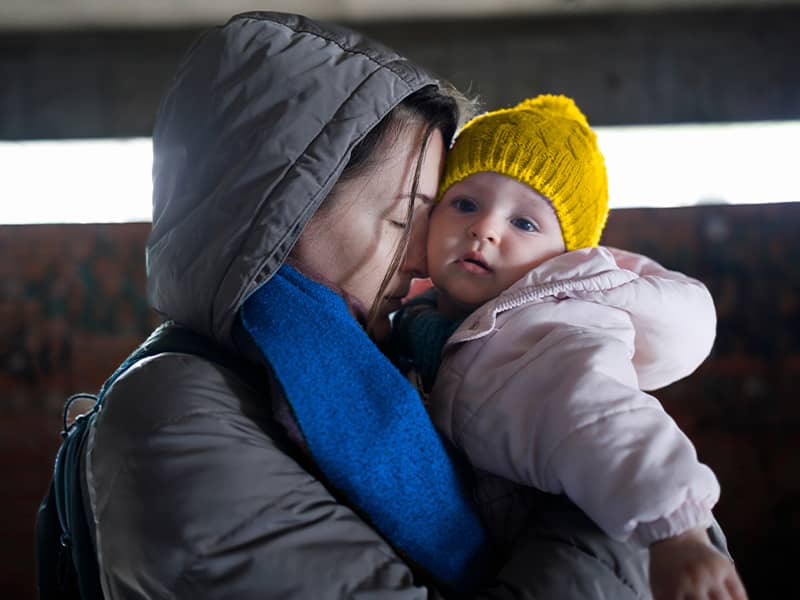CLEVELAND (AP)--The Rev. Harry Eberts is accustomed to praying in hospitals with members of his church. But facing surgery a couple of years ago, he was taken aback when his doctor suggested that they pray together.
``He took me by surprise,'' said the 40-year-old pastor of the Lyndhurst Community Presbyterian Church in suburban Cleveland.
Eberts did pray with his doctor and felt better prepared for his heart surgery.
``It felt a little odd at first and then there was a sense of more going on than just the surgery,'' Eberts said.
Giving patients such a sense--that their doctors care about more than physical healing--is the goal of programs funded by separate John Templeton Foundation grants at the Cleveland Clinic and the nearby medical school of Case Western Reserve University.
Psychiatric residents at the research hospital and medical students at the university are learning to consider adding a dose of spirituality along with taking a patient's pulse and medical history.
``This is an approach that allows the physician to understand their patient at a deeper level,'' said Dr. Scott H. Frank, who directs the patient spirituality program at the medical school.
Just as doctors may ask patients about using exercise or other techniques to cope with pain, they can gently approach the subject of faith or spirituality as a healing tool.
``The direction the patient takes is the one we go,'' said Frank, 44, a Roman Catholic convert who was raised Episcopalian. ``If they relate that religion is part of how they cope, then one might pursue more questions about it.''
In ancient times spiritual leaders also treated the sick, but the emergence of a medical profession created a gap between the fields. In the Cleveland programs, doctors and clergy meet with medical students to discuss the conflicts and the tenets of various faiths. Students sometimes accompany a chaplain on a bedside visit to get a feel for a patient's spirituality.
The clinic program for physicians preparing to become psychiatrists additionally explores the traditional attempt by psychiatrists to explain behavior without regard to faith.
``We need to help physicians, residents in particular, to appreciate religion as part and parcel of the cultural experience that person has lived,'' said Dr. David S. Rue, who directs the clinic program.
Spiritual issues can be particularly important for psychiatrists because they are ``connected to that patient's inner emotional fear and shame,'' said Rue, a Presbyterian. ``Psychiatrists need to be sensitized and appreciative of a patient's way of coping, which could include religion and spirituality.''
Robin Baines, 24, a second-year Case medical student from Buffalo, N.Y., said the course material on spirituality will help her when she becomes a primary-care physician.
``I will be open with them,'' she said. ``I can work within their framework of coping.''
And would she pray with her patients?
``It's something I'm open to if that's what they desire,'' said Baines, who is Baptist.
Kyle Henneberry, 25, a second-year medical student from Spokane, Wash., was raised Episcopalian and describes himself now as spiritual but not churchgoing.
``I came to the class with sort of an idea that faith and spirituality and religion are integral to people's lives, but I didn't realize how central and how profound the impact of faith and spirituality could be, as it relates to medicine,'' he said.
The clinic got $15,000 in John Templeton Foundation funding, and Case received $50,000 over three years.
The Philadelphia-based foundation promotes understanding of the role of spirituality; it finances more than 150 projects, studies and publications worldwide.
The Cleveland studies are not the first to examine the link between spirituality and health. A 1998 Duke University study of people over 65, for example, found those who participated in religious activities were 40 percent less likely to have high blood pressure. Other research has concluded that religious people are less depressed, have healthier immune systems and deal better with addictions.
Frank distinguishes between healing--making a patient feel whole--and curing, or removing disease. Even a cured patient may not feel whole, and that's where spiritual issues can play a role, he said.
``Hope implies faith,'' he said. ``I try to teach students that the role of every patient encounter should be for the patient to have more hope than they came in with, have more hope that they will get better soon.''
He said a doctor should never push spirituality. ``If patients don't list religion (as a coping mechanism), we don't teach the students to say, `Well, you might want to think about religion as one way to cope.' We are not proselytizing,'' Frank said.
In either case, some doctors may feel uncomfortable discussing religion, according to Rue.
But for future doctors willing to consider making religion--and prayer--part of a doctor's appointment, the result can be positive, Frank said.
``There's increased job satisfaction because you do relate to the patient on a more personal, individual basis,'' he said. ``For those who do pursue this, there is a great sense of fulfillment.''

| Copyright 2000 Associated Press. All rights reserved. This material may not be published, broadcast, rewritten or redistributed. |

Legal Disclaimer - Copyright c2000 - iSyndicate, Inc.

